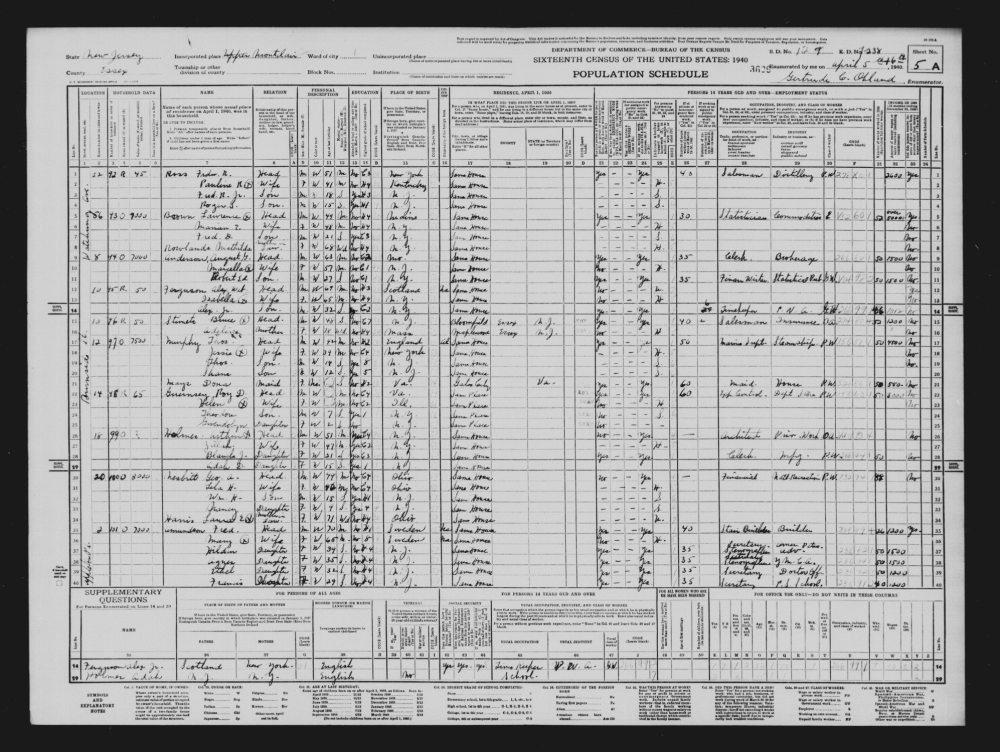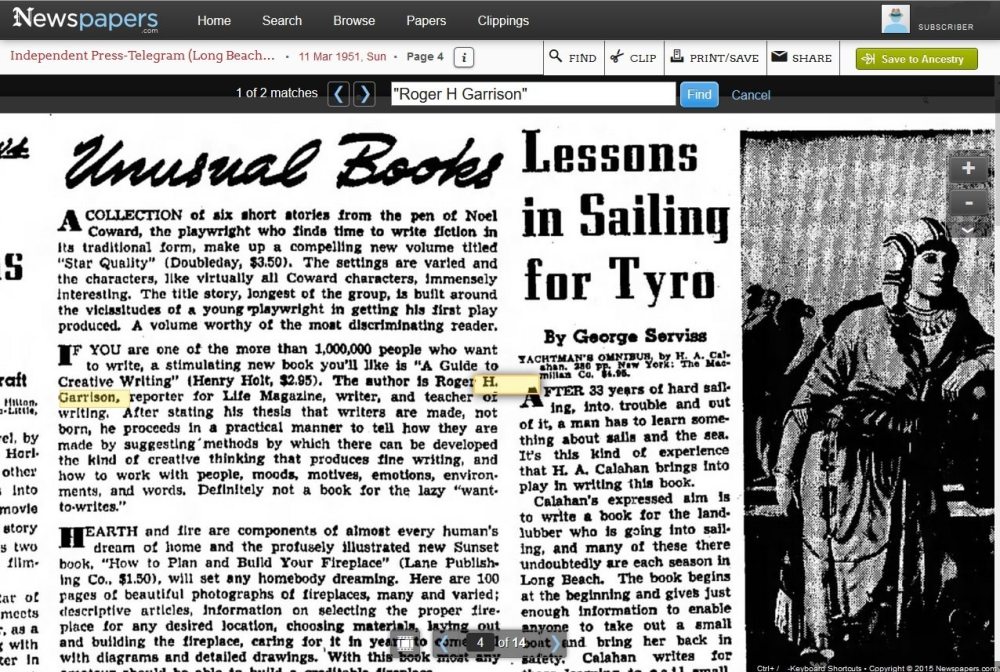 Newspapers aren’t new. Neither is the 1940 Census. But being able to easily search them is. The 1940 Census was only made public by the United States National Archives on April 2, 2012. It didn’t happen sooner because of the “keep this private for 72 years” rules. (Thus, the 1950 Census will be available in 2022!) So only for the past few years have we been able to add those records to our family history timelines. Neither of my parents and none of my aunts and uncles were yet born in 1940, so I’ll still have to wait for the next one to research that generation’s census records. But in 1940, my grandparents were all young adults, making their start in the world or finishing up college. Unfortunately, that also meant that many of them didn’t show up in the census, because 1940 was sometimes a transition year.
Newspapers aren’t new. Neither is the 1940 Census. But being able to easily search them is. The 1940 Census was only made public by the United States National Archives on April 2, 2012. It didn’t happen sooner because of the “keep this private for 72 years” rules. (Thus, the 1950 Census will be available in 2022!) So only for the past few years have we been able to add those records to our family history timelines. Neither of my parents and none of my aunts and uncles were yet born in 1940, so I’ll still have to wait for the next one to research that generation’s census records. But in 1940, my grandparents were all young adults, making their start in the world or finishing up college. Unfortunately, that also meant that many of them didn’t show up in the census, because 1940 was sometimes a transition year.
What is the census? It’s a population counting activity that is done every ten years to give proper count for determining the numbers of representatives in the U.S. House of Representatives. But, more than counting people, the census, done since 1790, has always gathered additional information. Some decades, quite a lot of additional information was gathered, such as age, occupation, where your parents were born, how much your business was worth, etc. You’ll see the different facts gathered as you look through different years’ census records.

In 1940, this country had been in a depression for a decade, and many families’ fortunes had taken a turn for the worse. The 1940 census included the usual names, ages, relationships, and occupations, but also had questions about employment status, migration, level of education, and participation in some of the New Deal programs. For a full list of questions and for more information, the National Archives has a useful webpage resource. Search Ancestry.com to find your ancestors in their indexed 1940 Census.
Newspapers have been around for quite a long time, but, until recently, searching through old issues pretty much meant sitting around, working your way through a stack of microfiche. Looking for specific search terms was a pipe dream. Slowly, many newspapers have been digitizing their back issues, and allowing some search on their individual websites. But late in 2012, Newspapers.com launched, giving easy search access to old and new newspapers, mostly in the United States, but there are also some newspapers from other countries, such as England, Ireland, Canada, and Australia. This resource is very useful for genealogists, but also for anyone doing any kind of historical research.
Newspapers.com carries information from 3,600 newspapers from the present day back to the 1700s, with new records being added continuously. If you’re not sure where to start, there are some tutorials to help. http://www.newspapers.com/basics/ You can also browse newspapers, or search by date or location, in addition to keyword searches. There’s no end to the use of such a resource. While I’m including it here because of its value in genealogical research (finding your ancestors’ names in newspaper articles is pretty cool), it can also be used for general, historical, and writing research, or if you just want to learn more about a time or a place. It’s quite fascinating to see what qualifies as news sometimes.

What can you find of use to genealogical research in newspapers? Obituaries are the first thing to look for. You often learn about someone’s family, place(s) of residence, occupation, and other interests. Sometimes they also list the location of burial. In addition, people’s names show up in newspaper articles about various and sundry topics, including book reviews (see my grandfather’s newspaper appearance above). Perhaps your ancestor was a senator, or maybe owned a local business. Maybe they were accused of a crime. Fill out the bigger picture with these interesting, personal stories.
Searching the whole collection of newspapers may be too much to weed through, so try to narrow down your newspaper focus to a location or a date. Then search within those results. See what you can find. Even if you don’t find what you’re looking for, you can ask the site to notify you when something comes along to match your search. Pretty handy.

You can get access to everything Newspapers.com has to offer with an All Access membership from Ancestry.com. You can also get a stand-alone membership to just Newspapers.com, if that’s where your needs lie. But the combined membership has plenty of added benefit: While you’re searching on Newspapers.com, if you find something that matches one of your ancestors, you can save it to your Ancestry tree right from the page. It’s all integrated.
I’m new to newspaper research, but finding little bits of family history tucked away in these newspapers is pretty exciting.
(Check out Part I of this series, Ancestry.com Continues to Expand and Deliver, and Part II, Ancestry Academy Teaches You Tips and Helps You Unlock Treasures.)

Note: I was given access to Ancestry.com’s databases and sister sites for the purposes of these reviews.



